
Yogyakarta: The Cultural Heartbeat of Indonesia
Welcome to Yogyakarta, a city where tradition and modernity blend harmoniously. Known for its rich cultural heritage, Yogyakarta is the soul of Java. It is home to the world-renowned Borobudur and Prambanan temples, which stand as testaments to the city's historical significance and architectural grandeur. As you wander through the bustling streets of Malioboro, you will be greeted by vibrant batik shops, local markets, and street food vendors. The aroma of traditional Javanese cuisine fills the air, inviting you to indulge in local delicacies such as gudeg and bakpia. The city's atmosphere is lively and welcoming, making every visitor feel at home. Yogyakarta is also a hub for arts and education. The city hosts numerous cultural festivals, art exhibitions, and traditional dance performances. Don't miss the chance to visit Taman Sari, the Water Castle, and the Sultan's Palace (Kraton), where you can learn about the city's royal history and see traditional Javanese architecture up close. Whether you are an adventurer, history buff, or art lover, Yogyakarta offers a unique and memorable experience for every traveler.
Local tips in Yogyakarta
- Visit Borobudur and Prambanan temples early in the morning to avoid crowds and enjoy the sunrise.
- Explore Malioboro Street at night for a lively atmosphere and great street food.
- Hire a local guide at the Sultan's Palace to gain deeper insights into Javanese history and culture.
- Try traditional Javanese dishes like gudeg and bakpia in local restaurants for an authentic culinary experience.
- Participate in a batik-making workshop to learn about this traditional Javanese art form.
Neighbourhoods in Yogyakarta
Yogyakarta: The Cultural Heartbeat of Indonesia
Welcome to Yogyakarta, a city where tradition and modernity blend harmoniously. Known for its rich cultural heritage, Yogyakarta is the soul of Java. It is home to the world-renowned Borobudur and Prambanan temples, which stand as testaments to the city's historical significance and architectural grandeur. As you wander through the bustling streets of Malioboro, you will be greeted by vibrant batik shops, local markets, and street food vendors. The aroma of traditional Javanese cuisine fills the air, inviting you to indulge in local delicacies such as gudeg and bakpia. The city's atmosphere is lively and welcoming, making every visitor feel at home. Yogyakarta is also a hub for arts and education. The city hosts numerous cultural festivals, art exhibitions, and traditional dance performances. Don't miss the chance to visit Taman Sari, the Water Castle, and the Sultan's Palace (Kraton), where you can learn about the city's royal history and see traditional Javanese architecture up close. Whether you are an adventurer, history buff, or art lover, Yogyakarta offers a unique and memorable experience for every traveler.
When is the best time to go to Yogyakarta?
Iconic landmarks you can’t miss
Prambanan Temple
Explore the grandeur of Prambanan Temple, Indonesia's largest Hindu temple complex, showcasing exquisite architecture and rich cultural heritage.
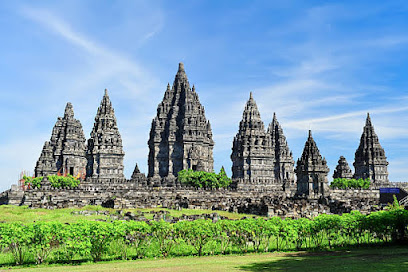
Beringharjo Market
Explore Beringharjo Market in Yogyakarta, a lively marketplace brimming with traditional crafts, delicious local cuisine, and a vibrant atmosphere.
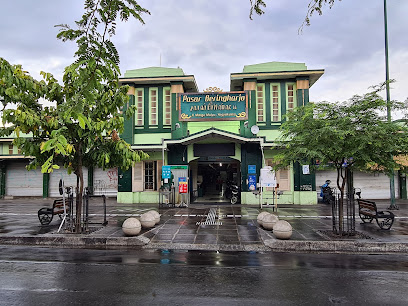
Malioboro Yogyakarta
Explore Malioboro Yogyakarta, a vibrant hub of culture, shopping, and dining that captures the spirit of Indonesia in every corner.
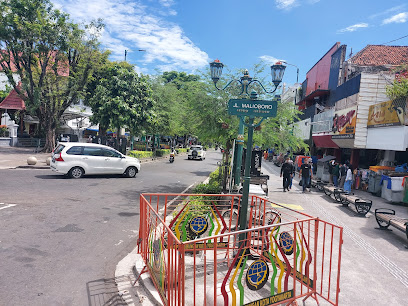
Tebing Breksi
Discover the breathtaking limestone cliffs and rich cultural heritage at Tebing Breksi, a unique ecological park in Yogyakarta, Indonesia.
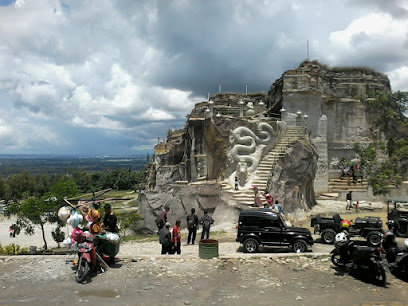
Titik Nol Kilometer Yogyakarta
Discover the vibrant heart of Yogyakarta at Titik Nol Kilometer, a cultural hub filled with history, art, and local delights.
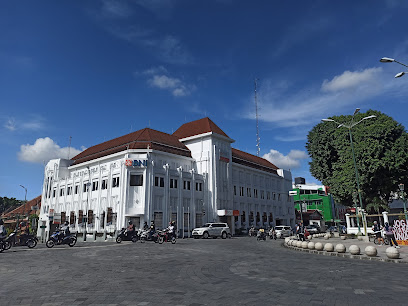
Gembira Loka Zoo
Explore Gembira Loka Zoo in Yogyakarta, where wildlife meets education in a beautiful setting for families and tourists alike.

Taman Sari
Explore Taman Sari, the enchanting water castle of Yogyakarta, blending rich history with stunning architecture and lush gardens.
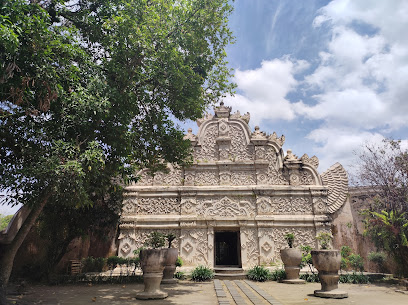
Yogyakarta Monument
Explore the historical Yogyakarta Monument, a symbol of the city’s cultural heritage and resilience, surrounded by lively local life.
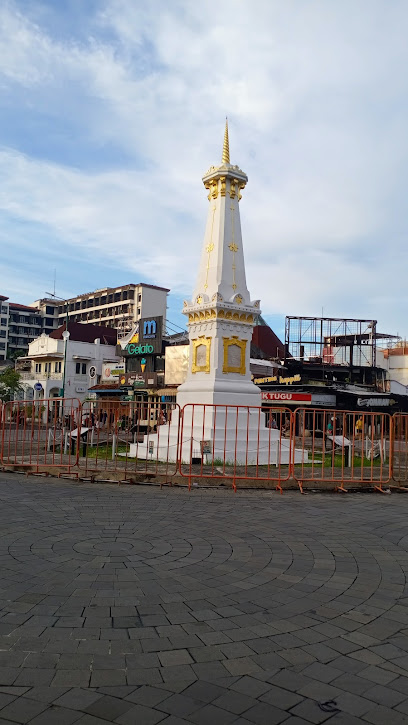
Keraton Ngayogyakarta Hadiningrat
Discover the rich heritage of Yogyakarta at the stunning Keraton Ngayogyakarta Hadiningrat, a royal palace steeped in history and culture.
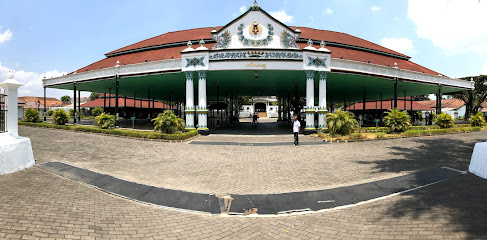
Hutan Pinus Pengger
Discover the enchanting beauty of Hutan Pinus Pengger, a serene national forest in Yogyakarta offering stunning views, artistic installations, and tranquil nature.
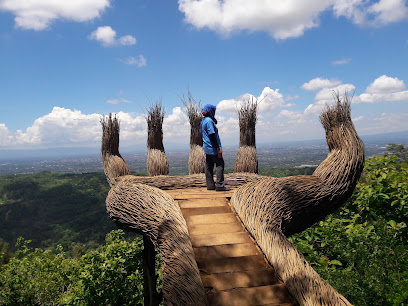
Vredeburg Museum
Explore Indonesia's captivating history at Vredeburg Museum, a historical fortress in Yogyakarta showcasing cultural heritage and immersive exhibits.
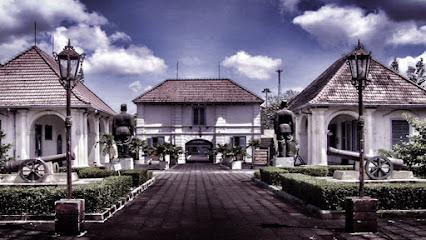
Ratu Boko Temple
Explore the ancient wonders of Ratu Boko Temple, where breathtaking views and rich cultural heritage come together in a stunning historical site.
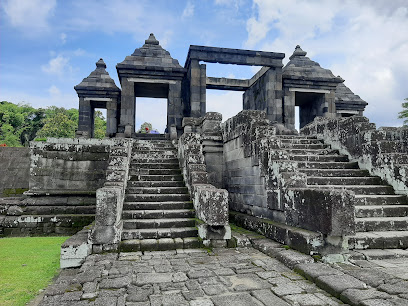
Gedhe Keraton Yogyakarta Mosque
Explore the architectural marvel of Gedhe Keraton Yogyakarta Mosque, a serene oasis reflecting the rich cultural heritage of Yogyakarta.
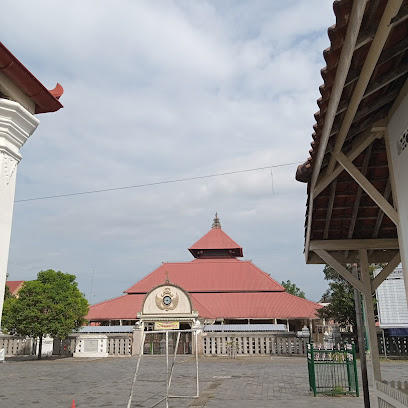
Monumen Yogya Kembali
Explore the profound history of Indonesia at Monumen Yogya Kembali, a captivating monument dedicated to the nation's fight for independence.
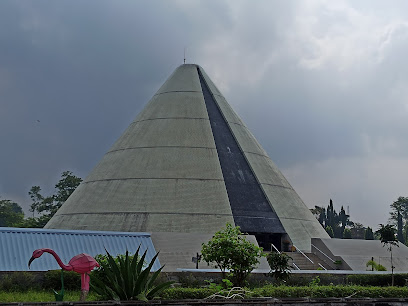
Pasar Ngasem
Explore Pasar Ngasem, Yogyakarta's traditional market, where vibrant local culture, delicious street food, and unique crafts come together for an unforgettable experience.
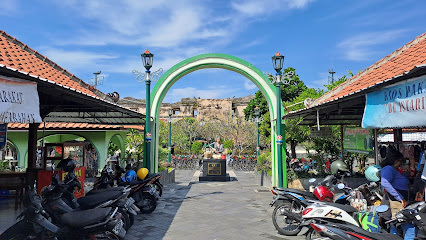
Unmissable attractions to see
Borobudur Temple
Explore Borobudur Temple, a UNESCO World Heritage Site, where ancient Buddhist architecture meets breathtaking beauty in Central Java, Indonesia.
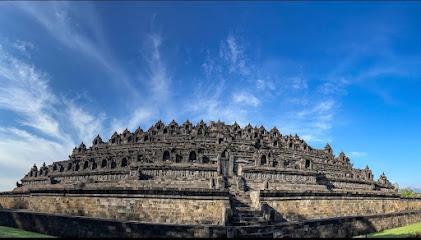
Prambanan Temple
Explore the breathtaking Prambanan Temple, an architectural masterpiece and UNESCO World Heritage Site, rich in history and cultural significance.
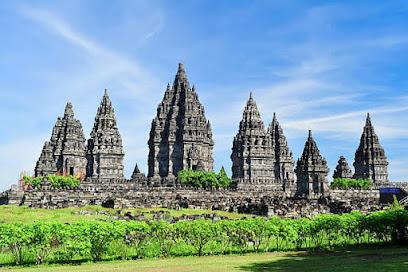
Tebing Breksi
Discover the breathtaking beauty and artistic allure of Tebing Breksi in Yogyakarta, where nature meets creativity in an unforgettable experience.
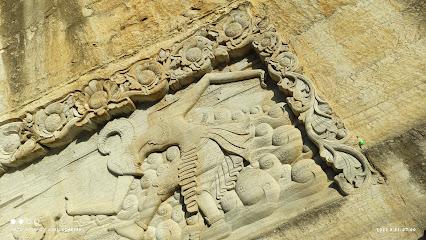
Gembira Loka Zoo
Explore Gembira Loka Zoo in Yogyakarta for unforgettable wildlife encounters and lush landscapes, perfect for family adventures and nature lovers.
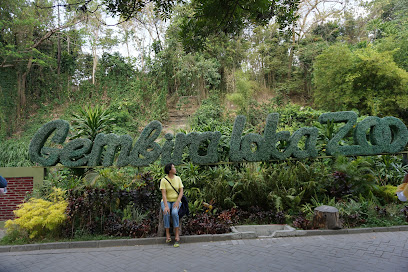
Taman Sari
Discover the enchanting Taman Sari Water Castle in Yogyakarta, a historical landmark that offers a glimpse into Indonesia's royal heritage and stunning architecture.
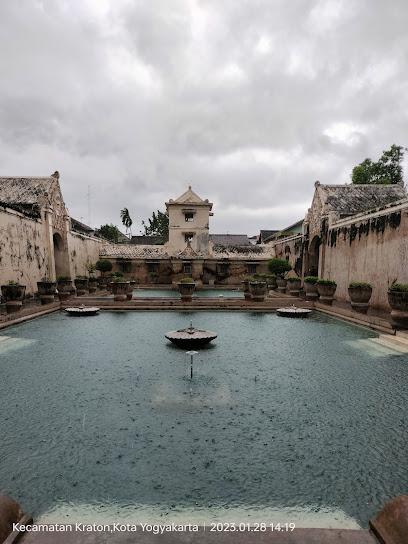
Keraton Ngayogyakarta Hadiningrat
Explore the grandeur of Keraton Ngayogyakarta Hadiningrat, a historical landmark and cultural treasure in Yogyakarta, Indonesia.
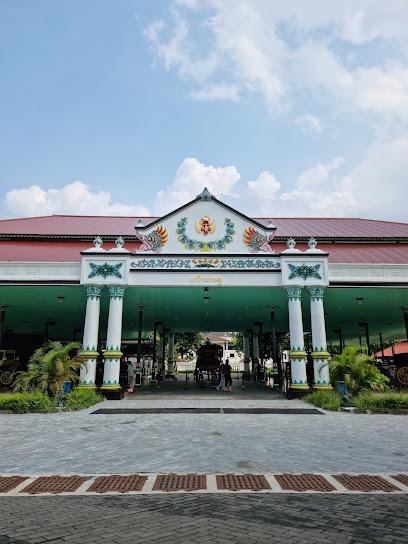
Bukit Rhema Gereja Merpati Putih
Discover the architectural marvel and spiritual refuge at Bukit Rhema Gereja Merpati Putih in Central Java, a must-visit for every traveler.
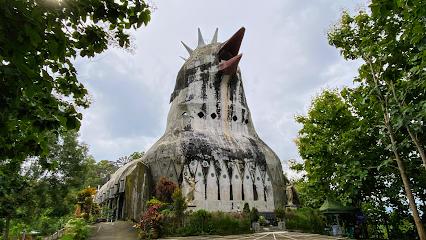
Maguwoharjo Stadium
Discover the vibrant atmosphere of Maguwoharjo Stadium, where sports and culture collide in the heart of Yogyakarta.
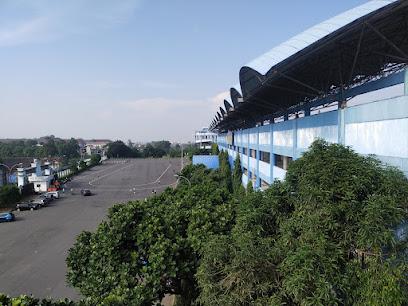
The Lost World Castle
Explore the magical charm of The Lost World Castle, a stunning tourist attraction in Yogyakarta, blending adventure and cultural immersion.
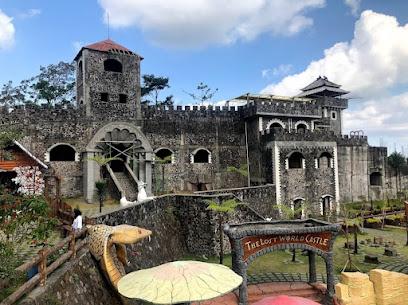
Vredeburg Museum
Explore the rich history and cultural heritage of Indonesia at Vredeburg Museum in Yogyakarta, a must-visit attraction for all travelers.
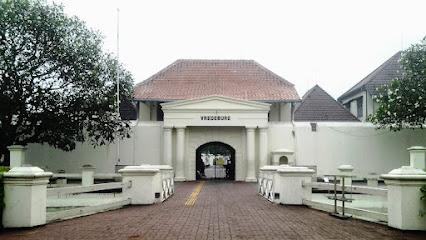
Bunker Kaliadem Merapi
Discover the breathtaking landscapes and volcanic history at Bunker Kaliadem Merapi, a must-visit tourist attraction in Yogyakarta.
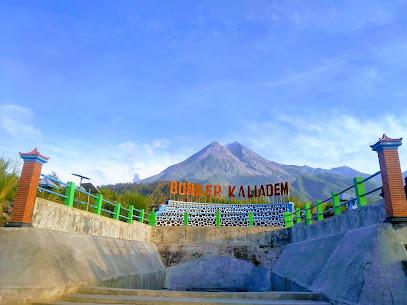
Pasar Legi Kotagede
Discover the heart of Javanese culture at Pasar Legi Kotagede, a traditional market bursting with local flavors, crafts, and vibrant street life.
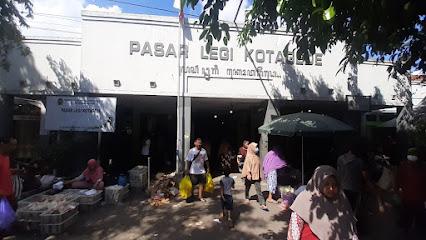
Parangtritis Beach
Experience the breathtaking landscapes and vibrant culture at Parangtritis Beach, a must-visit coastal paradise in Yogyakarta, Indonesia.
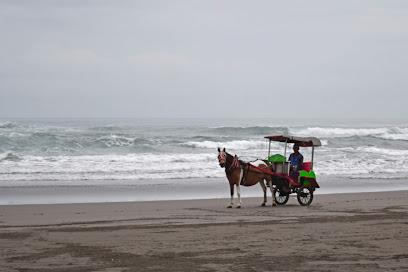
Alun-Alun Kidul Yogyakarta
Discover the vibrant heart of Yogyakarta at Alun-Alun Kidul, a charming city park filled with history, culture, and local flavors.
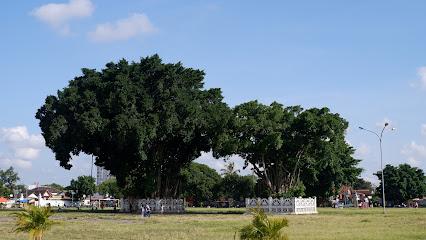
Ratu Boko Temple
Explore the ancient Ratu Boko Temple in Yogyakarta, an archaeological gem showcasing Indonesia's rich history and breathtaking landscapes.
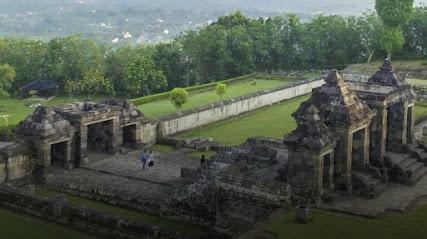
Essential places to dine
The House of Raminten
Experience the authentic flavors of Indonesian cuisine at The House of Raminten in Yogyakarta - where tradition meets taste.
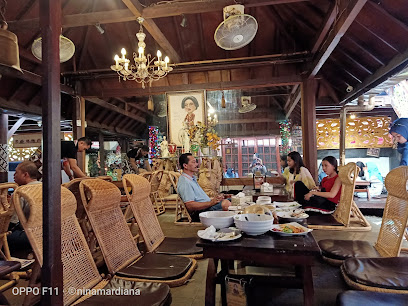
Mediterranea Restaurant by Kamil
Savor authentic Mediterranean flavors at Mediterranea Restaurant by Kamil in Yogyakarta – a perfect blend of taste and ambiance.
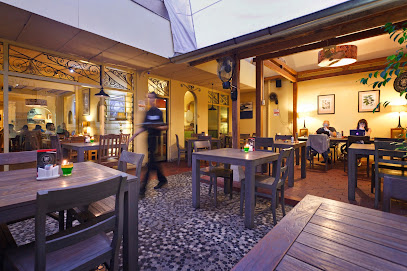
Nanamia Pizzeria Jogja ( South Area )
Experience authentic Italian cuisine at Nanamia Pizzeria Jogja – where every slice tells a story.
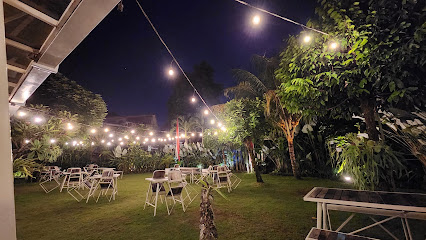
Gubug Makan Mang Engking Soragan Castle
Experience authentic Sundanese cuisine in a captivating castle setting at Gubug Makan Mang Engking in Yogyakarta.
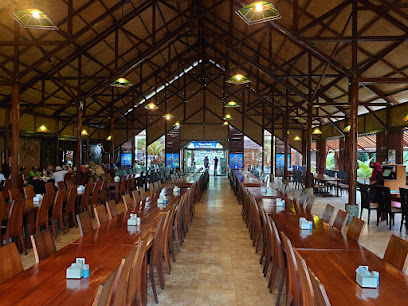
Banyu Mili Resto
Experience the best seafood in Yogyakarta at Banyu Mili Resto – where fresh flavors meet local hospitality.
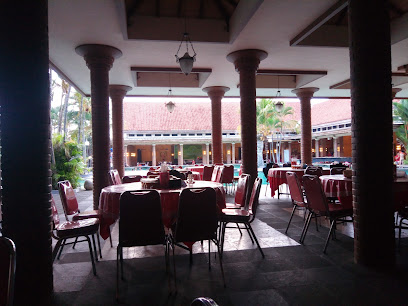
Roaster And Bear Restaurant
Discover culinary excellence at Roaster And Bear Restaurant in Yogyakarta – where Western flavors meet Asian inspirations.
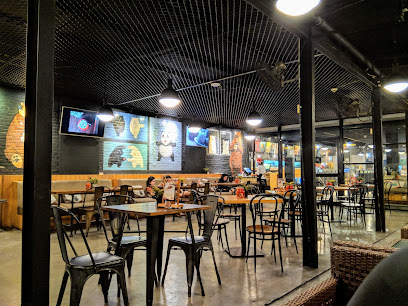
Bale Raos - The Sultan's Dishes
Experience the essence of Indonesian cuisine at Bale Raos, where traditional dishes meet royal heritage in Yogyakarta.
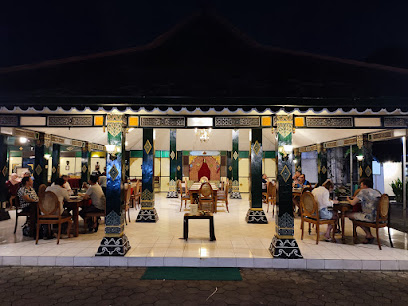
Restoran Bumbu Desa
Discover the rich flavors of Sundanese cuisine at Restoran Bumbu Desa in Yogyakarta—an unforgettable culinary journey awaits.
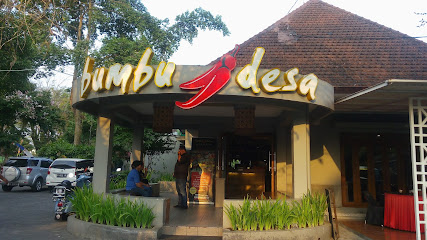
Secret Garden Coffee and Chocolate
Experience delightful Indonesian cuisine amidst lush gardens at Secret Garden Coffee and Chocolate in Yogyakarta.
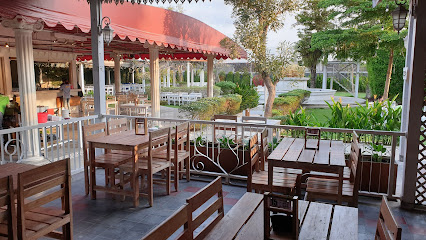
Pempek Ny. Kamto Beskalan
Savor the authentic taste of Indonesia at Pempek Ny. Kamto Beskalan, where delicious pempek meets warm hospitality in Yogyakarta.
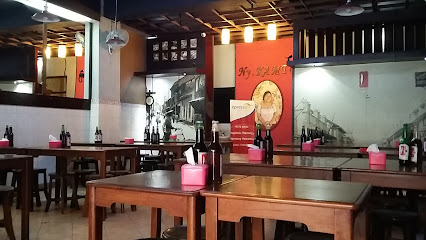
ViaVia Jogja
Experience the best of Yogyakarta's health-focused cuisine at ViaVia Jogja, where fresh ingredients meet local flavors in a cozy setting.
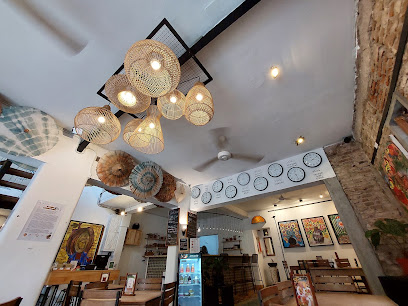
Warung Bu Ageng
Experience authentic Javanese cuisine at Warung Bu Ageng in Yogyakarta – where tradition meets flavor in every dish.
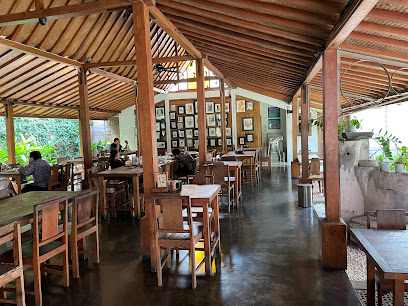
Sekar Kedhaton Restaurant
Experience the essence of Javanese cuisine at Sekar Kedhaton Restaurant in Yogyakarta – where every dish tells a story.
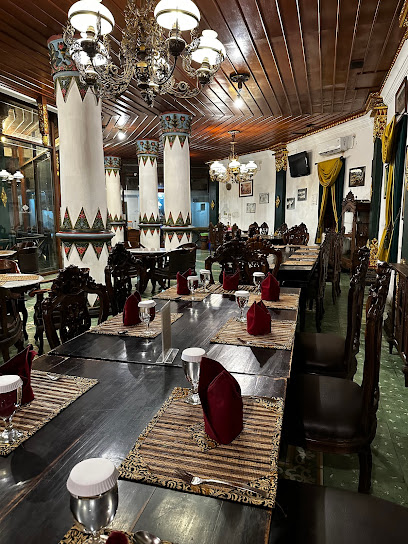
Lie Djiong Restaurant
Experience authentic Chinese flavors at Lie Djiong Restaurant in Yogyakarta – a culinary haven for food lovers seeking unique tastes.
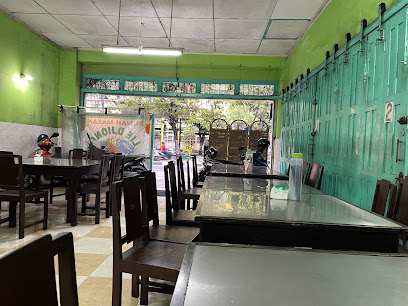
Madam Tan Indonesian Food
Experience authentic Indonesian flavors at Madam Tan Indonesian Food in Yogyakarta - where every dish tells a story.
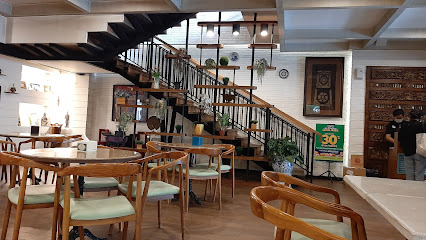
Markets, malls and hidden boutiques
Beringharjo Market
Discover the vibrant culture and authentic flavors of Yogyakarta at Beringharjo Market, a bustling hub of local crafts and cuisine.
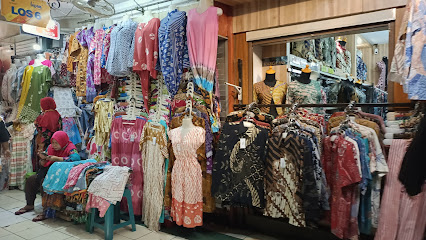
Malioboro Yogyakarta
Discover the vibrant heart of Yogyakarta at Malioboro, a shopping and cultural paradise filled with local delights and historical treasures.
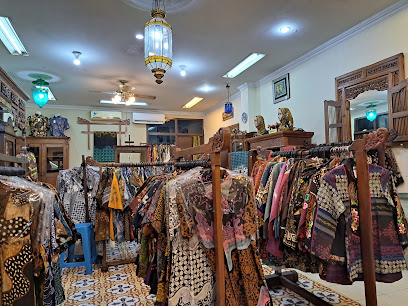
Plaza Ambarrukmo
Discover a vibrant shopping experience at Plaza Ambarrukmo, where local culture meets modern retail in Yogyakarta.
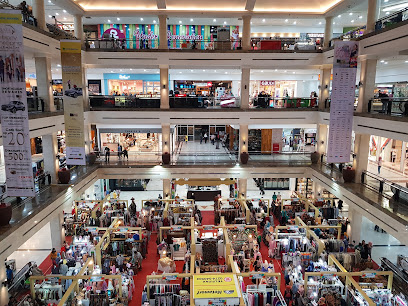
Malioboro Mall
Experience the dynamic shopping scene at Malioboro Mall, where culture meets modern retail in the heart of Yogyakarta.
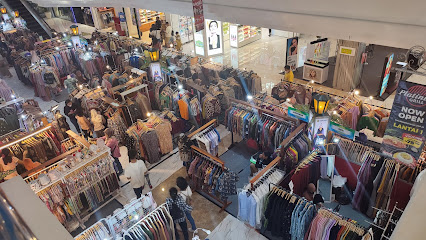
Pakuwon Mall Jogja
Experience the best of shopping and dining at Pakuwon Mall Jogja, your gateway to local culture and global brands in Yogyakarta.
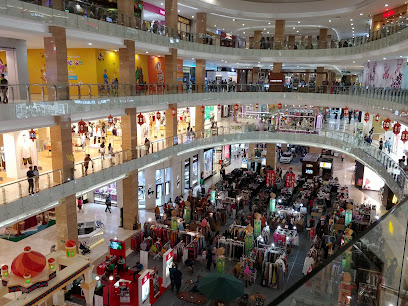
Jogja City Mall
Experience the essence of Yogyakarta at Jogja City Mall, where shopping, dining, and entertainment come together in a vibrant atmosphere.
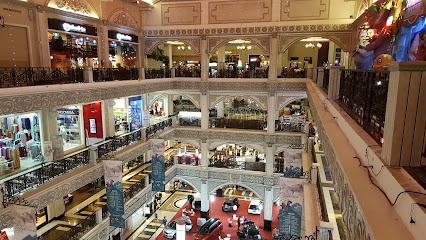
Hamzah Batik - Toko Batik dan Oleh-oleh Khas Jogja
Discover the vibrant world of batik and local handicrafts at Hamzah Batik, Yogyakarta's premier destination for authentic souvenirs.
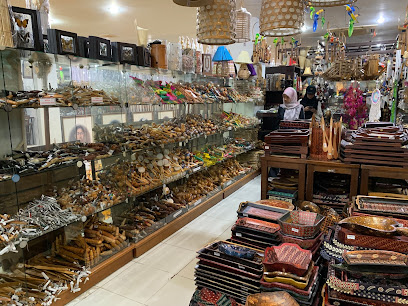
Galeria Mall
Discover the best of shopping and dining at Galeria Mall, Yogyakarta's premier retail destination offering diverse experiences for every traveler.
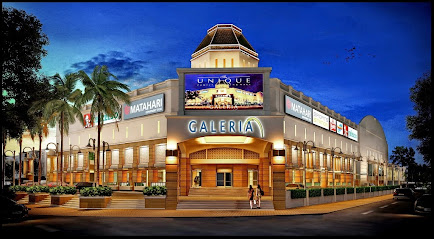
RAMAYANA Malioboro
Explore Ramayana Malioboro, Yogyakarta's iconic department store offering a diverse shopping experience amidst rich local culture.
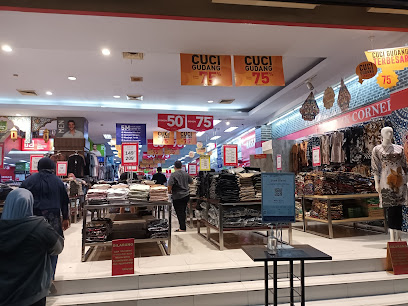
Batik Rumah Suryowijayan
Explore the vibrant world of batik at Rumah Suryowijayan, where tradition and artistry meet in Yogyakarta's finest clothing store.
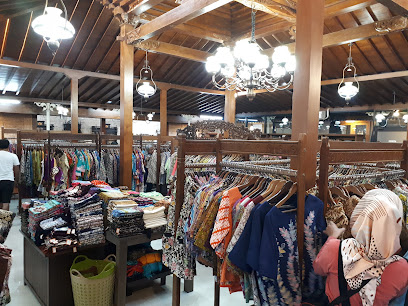
Teras Malioboro 1
Explore Teras Malioboro 1, where modern shopping meets traditional markets in Yogyakarta, offering unique crafts, fresh produce, and delightful local cuisine.
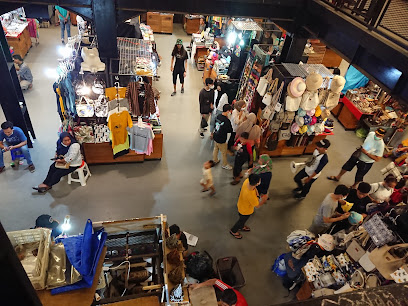
Toko Gunung Mas
Explore the exquisite collection of timepieces at Toko Gunung Mas in Yogyakarta, where luxury meets craftsmanship for every watch enthusiast.
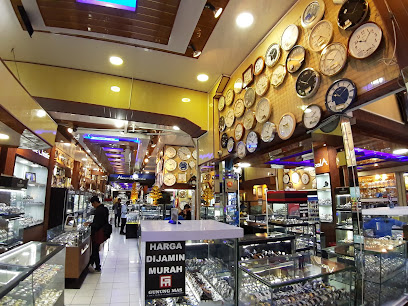
Toko Batik Wisnu
Discover exquisite batik clothing at Toko Batik Wisnu, where tradition meets contemporary style in the heart of Yogyakarta.
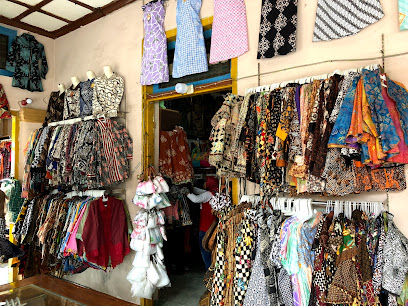
Senthir Market
Discover the vibrant flavors and local culture at Senthir Market, Yogyakarta's bustling produce market, perfect for food lovers and cultural enthusiasts.
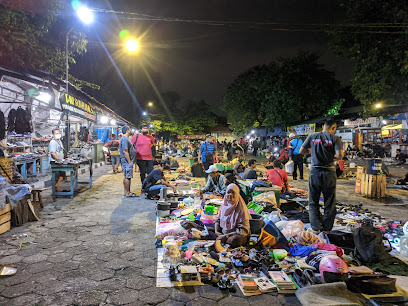
Dagadu Alun-Alun Utara
Explore the vibrant Dagadu Alun-Alun Utara for unique gifts and clothing that celebrate the rich culture of Yogyakarta.
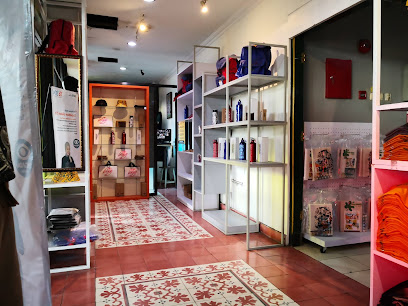
Essential bars & hidden hideouts
Liquid Bar And Kitchen
Experience the vibrant culinary scene and nightlife at Liquid Bar and Kitchen in Yogyakarta, where delicious grilled specialties meet lively entertainment.
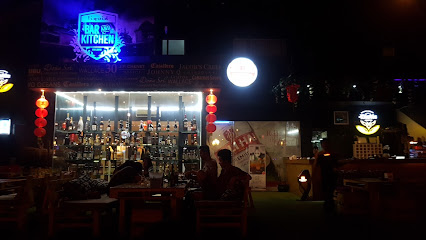
Sakapatat Brew House & Resto
Discover the vibrant flavors of Yogyakarta at Sakapatat Brew House & Resto, where delicious grilled dishes and craft beers await in a lively atmosphere.
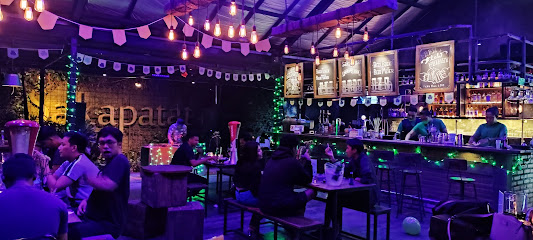
Platinum Kitchen, Bar & Lounge
Discover an upscale nightlife experience at Platinum Kitchen, Bar & Lounge in Yogyakarta, where cocktails and music create unforgettable moments.
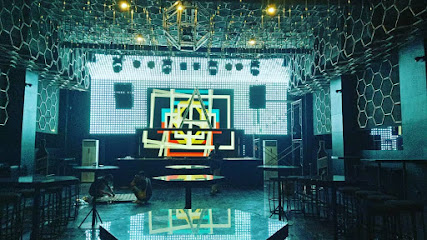
Lucifer
Experience the vibrant nightlife at Lucifer, Yogyakarta's premier bar-cafe offering a wide selection of drinks and a lively atmosphere.
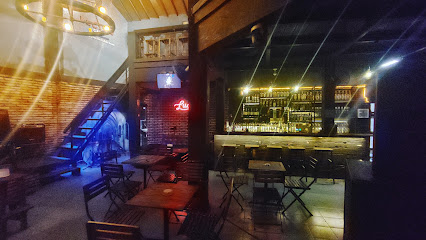
D' Skybar @ ibis Styles Yogyakarta
Experience the stunning skyline of Yogyakarta at D' Skybar, where exquisite drinks and local delicacies await in an elegant rooftop setting.
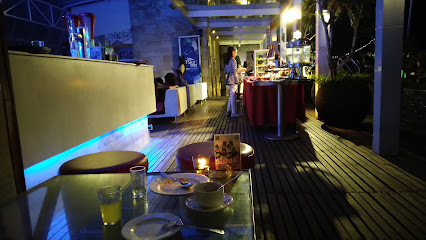
TILL DROP BAR & RESTO-PRAWIROTAMANOS
Discover the lively ambiance and delicious offerings at Till Drop Bar & Resto in Yogyakarta, a perfect spot for food and fun.
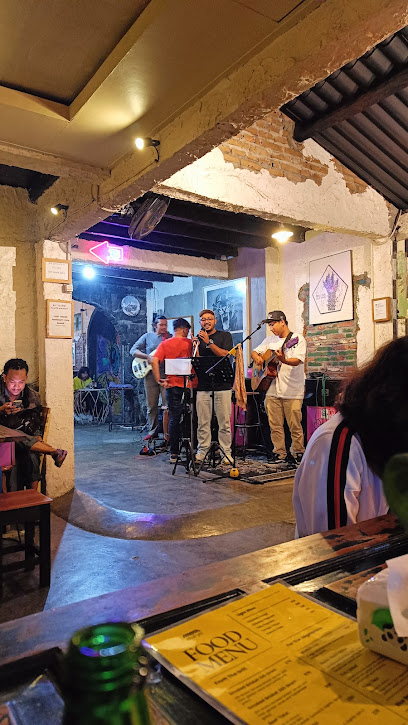
Boogie Down Bar
Experience Yogyakarta's nightlife at Boogie Down Bar, where vibrant music and delicious drinks create unforgettable memories.
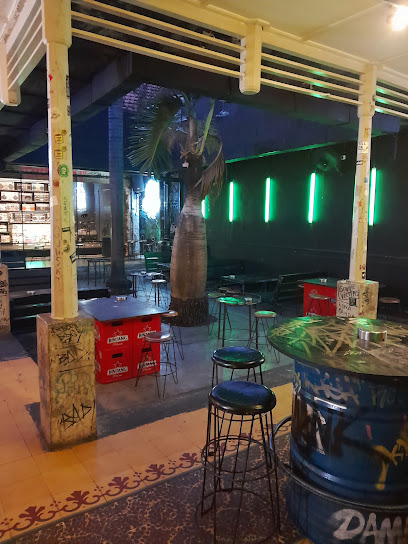
Spark Resto And Sports Bar
Experience the best of grilled cuisine and thrilling sports at Spark Resto And Sports Bar in Yogyakarta, where flavors and excitement meet.
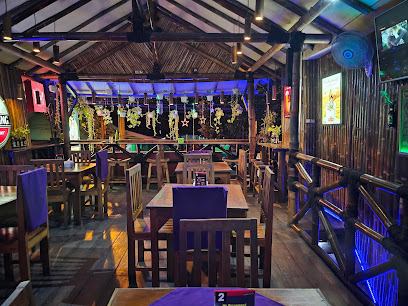
BLACKDOOR Lounge & KTV
Discover Yogyakarta's nightlife at BLACKDOOR Lounge & KTV, where great drinks, karaoke, and unforgettable fun await you.
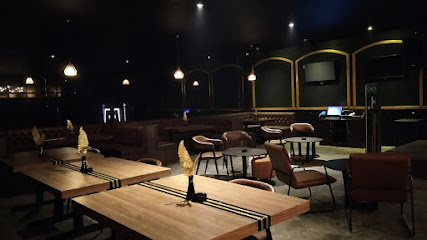
Arcadaz Lounge and Bar
Experience the vibrant nightlife of Yogyakarta at Arcadaz Lounge and Bar, where modern design meets traditional hospitality in a chic setting.
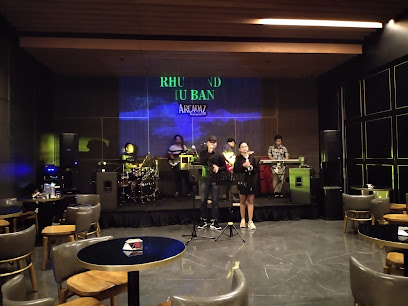
Chadis Bar Yogyakarta
Experience the vibrant nightlife of Yogyakarta at Chadis Bar, where delicious drinks and a lively atmosphere await.
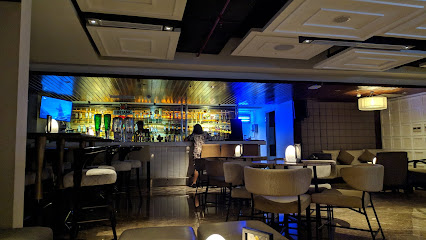
Vino bar
Experience the finest selection of wines in Yogyakarta's vibrant Vino bar, where every sip tells a story of flavor and culture.
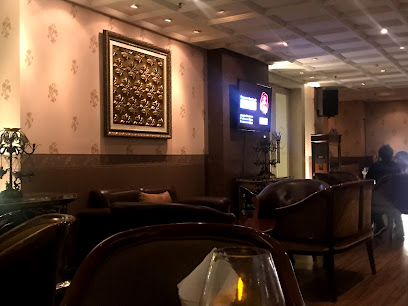
Barley and Barrel
Experience the lively ambiance and exceptional beverage selection at Barley and Barrel, a premier bar destination in Yogyakarta.
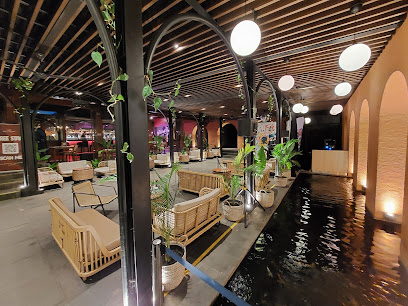
Von Dutch
Discover the stylish ambiance and lively atmosphere of Von Dutch, the ultimate bar experience in Yogyakarta.
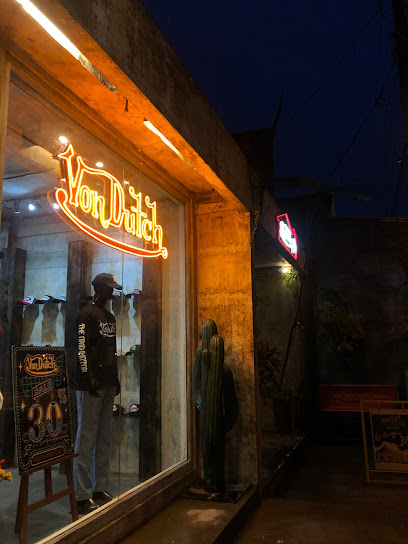
Pub Med Yogyakarta
Discover the vibrant nightlife at Pub Med Yogyakarta, where delicious drinks and a lively atmosphere await you.
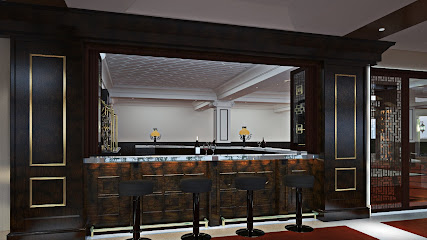
Local Phrases
-
- HelloHalo
[ha-loh] - GoodbyeSelamat tinggal
[se-la-mat ting-gal] - YesYa
[ya] - NoTidak
[tee-dak] - Please/You're welcomeSilakan
[si-la-kan] - Thank youTerima kasih
[te-ri-ma ka-sih] - Excuse me/SorryMaaf
[ma-af] - How are you?Apa kabar?
[a-pa ka-bar] - Fine. And you?Baik. Dan kamu?
[ba-ik. dan ka-mu] - Do you speak English?Apakah kamu bisa berbicara bahasa Inggris?
[a-pa-kah ka-mu bi-sa ber-bi-cha-ra ba-ha-sa Ing-gris] - I don't understandSaya tidak mengerti
[sa-ya tee-dak men-ger-tee]
- HelloHalo
-
- I'd like to see the menu, pleaseBoleh saya lihat menu, tolong
[bo-le sa-ya li-hat me-nu, to-long] - I don't eat meatSaya tidak makan daging
[sa-ya tee-dak ma-kan da-ying] - Cheers!Selamat minum!
[se-la-mat mi-num] - I would like to pay, pleaseBoleh saya bayar, tolong
[bo-le sa-ya ba-yar, to-long]
- I'd like to see the menu, pleaseBoleh saya lihat menu, tolong
-
- Help!Tolong!
[to-long] - Go away!Pergi!
[per-gi] - Call the Police!Panggil polisi!
[pang-gil po-li-si] - Call a doctor!Panggil dokter!
[pang-gil dok-ter] - I'm lostSaya tersesat
[sa-ya ter-se-sat] - I'm illSaya sakit
[sa-ya sa-kit]
- Help!Tolong!
-
- I'd like to buy...Saya ingin membeli...
[sa-ya in-gin mem-be-li] - I'm just lookingSaya hanya melihat-lihat
[sa-ya hu-nya me-li-hat-li-hat] - How much is it?Berapa harganya?
[be-ra-pa har-ga-nya] - That's too expensiveItu terlalu mahal
[i-tu ter-la-lu ma-hal] - Can you lower the price?Bisa kurangi harganya?
[bi-sa ku-ran-gi har-ga-nya]
- I'd like to buy...Saya ingin membeli...
-
- What time is it?Sekarang jam berapa?
[se-ka-rang jam be-ra-pa] - It's one o'clockSekarang pukul satu
[se-ka-rang pu-kul sa-tu] - Half past (10)Setengah (sepuluh)
[se-ten-gah (se-pu-luh)] - MorningPagi
[pa-gi] - AfternoonSiang
[si-ang] - EveningMalam
[ma-lam] - YesterdayKemarin
[ke-ma-rin] - TodayHari ini
[ha-ri i-ni] - TomorrowBesok
[be-sok] - 1Satu
[sa-tu] - 2Dua
[du-a] - 3Tiga
[ti-ga] - 4Empat
[em-pat] - 5Lima
[li-ma] - 6Enam
[e-nam] - 7Tujuh
[tu-juh] - 8Delapan
[de-la-pan] - 9Sembilan
[sem-bi-lan] - 10Sepuluh
[se-pu-luh]
- What time is it?Sekarang jam berapa?
-
- Where's a/the...?Dimana...
[di-ma-na] - What's the address?Alamatnya apa?
[a-la-mat-nya a-pa] - Can you show me (on the map)?Bisa tunjukkan saya (di peta)?
[bi-sa tun-juk-kan sa-ya (di pe-ta)] - When's the next (bus)?Kapan yang berikutnya (bis)?
[ka-pan yang be-ru-tun-ya (bis)] - A ticket (to ....)Tiket (ke ....)
[ti-ket (ke)]
- Where's a/the...?Dimana...
History of Yogyakarta
-
Yogyakarta, often affectionately called 'Jogja', was founded in 1755 following the Giyanti Agreement. The treaty divided the Mataram Sultanate, giving rise to the Sultanate of Yogyakarta. Sultan Hamengkubuwono I became the first ruler and established his court in the heart of the city, where the Kraton (royal palace) still stands today.
-
During the Dutch colonial period, Yogyakarta became a center of resistance. The city witnessed numerous uprisings, most notably during the Java War (1825-1830) led by Prince Diponegoro. The prince's guerrilla warfare tactics caused significant disruptions to Dutch rule, although the war eventually ended in his capture.
-
In World War II, Yogyakarta fell under Japanese occupation from 1942 to 1945. The Japanese presence disrupted Dutch control and inspired Indonesian nationalists. After the Japanese surrender, Yogyakarta played a crucial role in the Indonesian independence movement. Sultan Hamengkubuwono IX supported the Republic of Indonesia, and the city briefly served as the capital from 1946 to 1949 during the Indonesian National Revolution.
-
Yogyakarta has long been a cultural hub, particularly known for its batik, gamelan music, and wayang kulit (shadow puppetry). The establishment of Gadjah Mada University in 1949 further cemented its status as an educational and cultural center. The city's rich traditions continue to thrive, attracting artists, scholars, and tourists alike.
-
The region around Yogyakarta is known for its volcanic activity, particularly from Mount Merapi. Significant eruptions in 2006 and 2010 caused extensive damage and loss of life. Despite these challenges, the resilient spirit of Yogyakarta’s inhabitants has enabled the city to recover and rebuild, preserving its historical and cultural heritage.
-
Today, Yogyakarta is a dynamic blend of tradition and modernity. It is a bustling city that attracts tourists with its historical landmarks such as the Kraton, Prambanan Temple, and the iconic Borobudur Temple nearby. The city's vibrant arts scene, combined with its historical significance, makes it a must-visit destination for travelers seeking a deep dive into Indonesian culture.
Yogyakarta Essentials
-
Yogyakarta is well-connected by air, rail, and road. The city's main entry point is Adisutjipto International Airport (JOG), which serves domestic flights from major Indonesian cities and some international flights. Alternatively, the newly opened Yogyakarta International Airport (YIA) in Kulon Progo also serves international and domestic routes. From either airport, you can reach the city center by taxi, airport shuttle, or ride-hailing services. Yogyakarta is also accessible by train, with Tugu Station being the major railway hub connecting to cities like Jakarta, Bandung, and Surabaya. Buses from various parts of Java also serve Yogyakarta's main bus terminal, Giwangan.
-
Getting around Yogyakarta is convenient with various transportation options. Traditional becaks (pedicabs) and andongs (horse-drawn carriages) offer a unique way to explore the city. For more modern options, taxis, ride-hailing services like Grab, and motorbike taxis (ojek) are widely available. Public buses operated by Trans Jogja are an affordable option for traversing the city. For those looking for more independence, renting a scooter or bicycle is a popular choice. Traffic can be hectic, so always be cautious when driving or crossing streets.
-
The official currency in Yogyakarta is the Indonesian Rupiah (IDR). While credit cards are accepted in most hotels, restaurants, and larger stores, it is advisable to carry cash for smaller establishments and markets. ATMs are widely available throughout the city, and money changers can be found in tourist areas. It is a good idea to keep smaller denominations handy for easier transactions.
-
Yogyakarta is generally a safe destination for tourists, but it is wise to take standard precautions. Avoid walking alone at night in unfamiliar areas and keep your belongings secure, especially in crowded places like Malioboro Street. Be cautious in certain areas like Sosrowijayan, where petty crime can occur. Always stay aware of your surroundings and use reputable transportation options.
-
In case of emergency, dial 112 for immediate assistance. The main hospital in Yogyakarta is RSUP Dr. Sardjito, which provides comprehensive medical services. For minor health issues, numerous pharmacies are available throughout the city. It is recommended to have travel insurance that covers medical emergencies. In the event of a natural disaster, such as an earthquake or volcanic eruption, follow the instructions of local authorities and evacuate to designated safe areas if necessary.
-
Fashion: Do dress modestly, especially when visiting religious sites. Avoid wearing revealing clothing. Religion: Do respect local customs and traditions. Always remove your shoes when entering mosques and temples. Public Transport: Do be respectful and give up your seat to elderly passengers. Don't eat or drink on public transport. Greetings: Do greet people with a smile and a slight bow. A handshake is also common, but use your right hand, as the left hand is considered impolite. Eating & Drinking: Do try local delicacies and accept food offerings graciously. Don't refuse hospitality, as it is considered impolite.
-
To experience Yogyakarta like a local, visit the vibrant Malioboro Street for shopping and street food. Explore the traditional markets like Beringharjo for a taste of local life. Engage with locals, who are often friendly and willing to share stories about their culture and history. Don't miss the traditional Javanese dance performances at the Kraton (Sultan's Palace) or the Ramayana Ballet at Prambanan Temple. For a unique experience, take a sunrise tour of Borobudur Temple or hike up Mount Merapi for breathtaking views.
Trending Landmark in Yogyakarta
-
Prambanan Temple
-
Beringharjo Market
-
Malioboro Yogyakarta
-
Tebing Breksi
-
Titik Nol Kilometer Yogyakarta
-
Gembira Loka Zoo
-
Taman Sari
-
Yogyakarta Monument
-
Keraton Ngayogyakarta Hadiningrat
-
Hutan Pinus Pengger
-
Vredeburg Museum
-
Ratu Boko Temple
-
Gedhe Keraton Yogyakarta Mosque
-
Monumen Yogya Kembali
-
Pasar Ngasem
Nearby Cities to Yogyakarta
-
Things To Do in Semarang
-
Things To Do in Surabaya
-
Things To Do in Bandung
-
Things To Do in Jakarta
-
Things To Do in Bali
-
Things To Do in Poon Saan
-
Things To Do in Settlement
-
Things To Do in Flying Fish Cove
-
Things To Do in Drumsite
-
Things To Do in Greta Beach
-
Things To Do in Balikpapan
-
Things To Do in Kuching
-
Things To Do in Makassar
-
Things To Do in East Coast Park
-
Things To Do in Sentosa
















